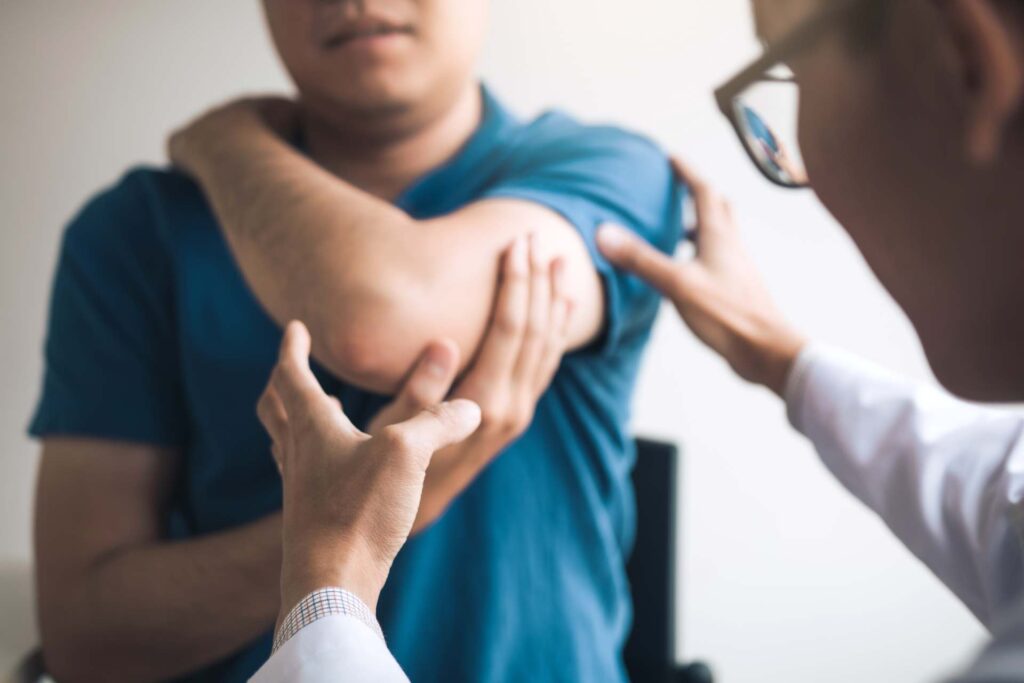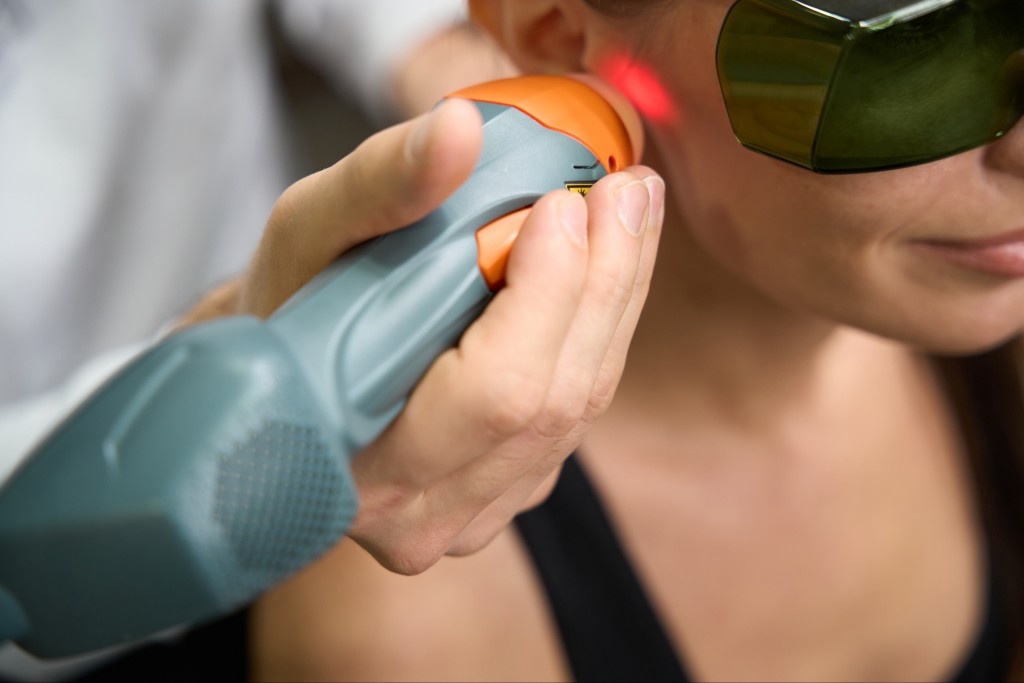Have you ever felt a sharp pain in your shoulder that just won’t go away? A pinched nerve in the shoulder can be a painful and frustrating condition that wreaks havoc on your daily life. Understanding the causes, symptoms, and treatment options can help you learn more about how to deal with a pinched nerve effectively. Let’s explore everything you need to know about pinched nerves in the shoulder, including their causes, symptoms, and treatment options.
What Is a Pinched Nerve?
A pinched nerve occurs when surrounding tissues, such as bones, cartilage, muscles, or tendons apply strong pressure to a nearby nerve. This pressure can disrupt healthy nerve functioning and cause symptoms like pain, tingling, numbness, or weakness in the area. Pinched nerves can occur in many parts of the body, including the neck, lower back, and shoulder.
5 Causes of a Pinched Nerve in the Shoulder
There are many things that can lead to developing a pinched nerve in the shoulder. Here are five common causes of a shoulder pinched nerve:
Herniated Disc
A herniated disc that occurs in the cervical spine occurs when the soft inner material of a spinal disc protrudes through its outer layer. This can aggravate nearby nerves that travel to the shoulder, leading to significant pain and discomfort.
Bone Spurs
Bone spurs are bony growths that can develop on the edges of bones because of conditions like arthritis or other degenerative conditions. These growths can put pressure on nearby nerves and cause a pinched nerve in the shoulder blade area.
Poor Posture
Using poor posture, especially if you sit or work at a desk for too long, can lead to muscle weakness and tension in the neck and shoulder area. This tension may lead to nerve compression and result in a pinched nerve.
Shoulder Injury
Shoulder injuries from car accidents, slips and falls, or even sports can cause misalignment of the shoulder or cervical spine, leading to nerve compression in the area and a subsequent pinched nerve.
Repetitive Movements
Engaging in repetitive motions, like heavy lifting or overhead activities, can put too much strain on the shoulder muscles, increasing the risk of a pinched nerve in the area.
Symptoms of a Pinched Nerve in the Shoulder
Pinched nerve in shoulder symptoms can vary depending on the severity and location of the nerve compression. Common symptoms include:
- Pain: Sharp, burning, or shooting pain in the shoulder or neck area is one of the most common symptoms of a pinched nerve. The pain can radiate down the arm or into the hand, causing more discomfort.
- Tingling and Numbness: A pinched nerve can cause tingling or a “pins and needles” sensation in the shoulder, arm, or fingers. Numbness or reduced sensation in these areas can also occur.
- Weakness: Muscle weakness in the shoulder, arm, or hand can develop because of a pinched nerve. This weakness may make it difficult to perform everyday tasks like lifting objects or typing on a keyboard.
- Limited Range of Motion: A pinched nerve can reduce your range of motion in the shoulder or neck areas, making it challenging to move around comfortably.
Diagnosing a Pinched Nerve in the Shoulder
If you think you’re dealing with a pinched nerve in your shoulder, seeking medical attention is important for receiving a professional diagnosis. Your doctor will take a detailed medical history and perform a physical exam to assess your range of motion, muscle strength, and areas of shoulder pain. Imaging tests, including X-rays, MRI scans, or CT scans, may be recommended to get a clearer picture of the shoulder and neck to identify any nerve compression or other abnormalities. An EMG is a type of neurological test that measures the electrical activity of muscles and nerves. It can help determine the level of nerve damage in the area and pinpoint the location of the compressed nerve.
Treatment Options for a Pinched Nerve in the Shoulder
 Here are some common treatment options that range from simple at-home remedies to more advanced medical interventions.
Here are some common treatment options that range from simple at-home remedies to more advanced medical interventions.
At-Home Remedies
At-home remedies are often the first line of defense against a pinched nerve and can be effective in relieving symptoms.
- Make time to rest your shoulder and avoid activities that may make your symptoms worse. Taking breaks from repetitive motions or heavy lifting can help prevent further irritation and allow the nerve to heal. It is always important to listen to your body and avoid pushing through pain.
- Applying hot or cold packs to your shoulder area can also provide major relief from pain and inflammation in the area. Cold therapy can help numb the area and reduce swelling, while heat therapy can relax tightened muscles and improve blood flow to the area. Alternating between heat and cold therapy can help with both inflammation and muscle tension.
Noninvasive Treatment Approaches
When at-home remedies are not enough, you can visit your Atlanta doctor for a personalized treatment plan that includes noninvasive treatments.
- Physical therapy is a highly effective treatment for a shoulder pinched nerve. A physical therapist will create an individualized stretching and exercise program to help strengthen the muscles around your shoulder and neck, improve your posture, and increase your flexibility.
- Chiropractors use a drug-free approach for a wide variety of health conditions. Chiropractic adjustments can help realign the spine and reduce pressure on the nearby nerves to provide lasting relief from a pinched nerve.
Additional Options
In some cases, additional medical interventions may be necessary if you are dealing with more severe symptoms or other underlying conditions of a pinched nerve. Corticosteroid injections may be recommended to help reduce inflammation and alleviate your pain. While not a permanent solution, corticosteroid injections can be helpful with managing your symptoms while you go through other treatments. Surgery may be considered if conservative treatments do not provide relief or if there is significant nerve damage, though surgery is typically reserved for severe cases where conservative treatments have been unsuccessful.
Visit AICA Orthopedics in Atlanta for Pinched Nerve Treatment
At AICA Orthopedics, our team of multidisciplinary doctors will create a personalized treatment plan that addresses your specific symptoms and experiences with a pinched nerve in the shoulder. Contact us today to get started!








